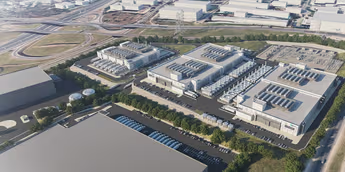When the Pulpit Replaces Policy How Nigeria’s obsession with religion stifles innovation, governance, and national growth

By Folorunso Fatai Adisa
We suffer stunted growth not for lack of dreams, but for the confusion between what is urgent and what is eternal. We major in the minor and minor in the major. We rage over trifles and argue with feverish conviction about shadows, while the substance of national development lies abandoned on the roadside, ignored, unsung, and untouched.
Ours is a country where public discourse is often hijacked by the self-righteous noise of the pulpit and the podium. We exhaust ourselves in endless sermons and spiritual competitions. Mosques and churches spring up at the pace of mushrooms after rain, while factories rust and research centres decay. We fight holy wars in an unholy land where roads are deathtraps and children sit on bare floors to learn. It is not religion itself that kills the spirit of progress, but the obsessive, performative devotion that leaves no room for reason, reform, or reality.
As Alvin Toffler warned, the illiterate of the 21st century will not be those who cannot read and write, but those who cannot learn, unlearn, and relearn. Yet here we are, slaves to inherited templates, bound to outdated beliefs, allergic to innovation. A people too wedded to the past to embrace the future. We cling to yesterday’s methods with the desperation of a drowning man, refusing to see that the world has moved on, and we are fast becoming a relic in it.
I live in the UK. One might expect Anglican cathedrals on every corner, but I don’t even know where the closest church is. What I do know is where to find a public library, a co-working hub, a local council office, all within walking distance. Civic infrastructure, not religious extremism, is what fuels progress. Even Saudi Arabia, long the global seat of Islamic conservatism, is now opening its gates to entertainment and sport. Riyadh dazzles with concerts and cinema. Its football league draws global stars and crowds. The same Saudi Arabia that once banned music now builds wealth from it.
Qatar hosted the World Cup and is becoming a prime tourist destination. They have learned the truth we still refuse to confront: modern states are not built on sermons alone but on strategy, structure, and serious investments in human potential.
Meanwhile, in Nigeria, we’re still trapped in the tiresome theatre of religious supremacy. Christians and Muslims argue over crescent and cross while their leaders drink from the same chalice of power and plunder. Behind closed doors, the elites of all creeds wine, dine, and laugh, while ordinary citizens burn tires, burn mosques, burn churches, and burn bridges.
From all available indices, economic, infrastructural, technological, it is evident we are not yet ready for serious nation-building. We keep mistaking emotion for engagement, and shouting for solutions. We react to headlines but ignore history. We chant prayers instead of planning policies. We build churches in government buildings and claim revival is coming, while the only revival we need is one of critical thinking, civic responsibility, and intellectual courage.
Until we unlearn this obsession with spectacle and begin the hard, quiet, often thankless work of nation-building, we will remain what we are: a giant in slogans, a dwarf in substance.





























































































































































































































































































































































































































































































































































































































































































































































































































































































































































































































































































































































































































































































































































